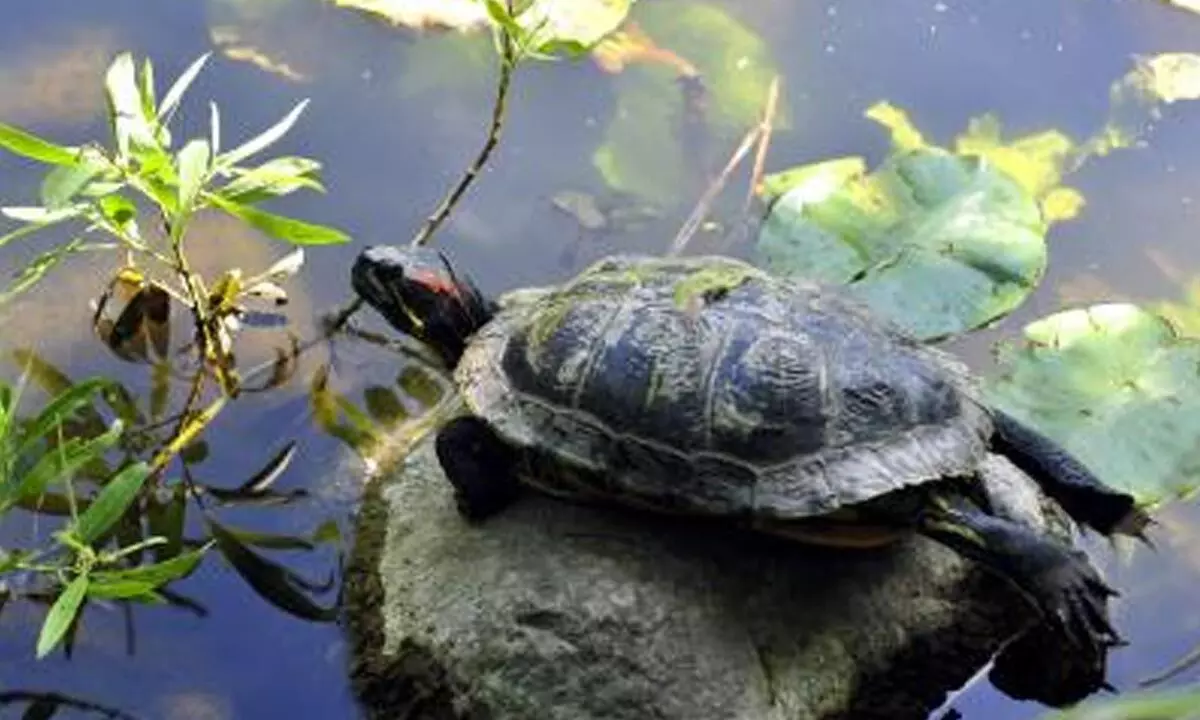PTR launches plan for turtle conservation, identification
Share :

The Pilibhit Tiger Reserve (PTR) in Uttar Pradesh has launched a 'five-year-plan' to safeguard turtles, conduct species identification and estimate their populations, both within and outside the reserve.
Pilibhit: The Pilibhit Tiger Reserve (PTR) in Uttar Pradesh has launched a 'five-year-plan' to safeguard turtles, conduct species identification and estimate their populations, both within and outside the reserve.
The initiative will be executed in collaboration with the Turtle Survival Alliance (TSA), an international institution headquartered in the US and dedicated to the conservation of turtles and tortoises.
PTR's divisional forest officer, Naveen Khandelwal, has sent a letter to TSA seeking its active participation in the programme.
“The decision is motivated by a recent step of the MoEFCC (ministry of environment, forest and climate change) towards the inclusion of 25 species of freshwater turtles in Schedule I of the Wildlife Protection Act out of a total of 29 found across the country. The proposed conservation plan also envisaged setting up a turtle research centre in the buffer forest area of PTR," he said.
According to the programme director of TSA in India, Shailendra Singh, the number of Schedule I turtle species in the country was confined to 20 before April this year.
"Uttar Pradesh, which had as many as seven turtle species under Schedule I out of a total of 15 identified ones so far, has stepped up now with 11 Schedule I species. Of the remaining four species, two have been placed in Schedule II and another two categorised as unprotected", he said.
Remarkably, out of the 13 turtle species, that had been identified in Pilibhit in a survey conducted by TSA in 2005, 11 are included as Schedule I species as specified in the recently revised Wildlife Protection Act, he added.
"Of the 29 freshwater species of turtles found in the country, 25 have been enlisted in the red list of the IUCN (International Union for Conservation of Nature) due to their reckless poaching and illegal trading. The launching of an integrated conservation plan becomes an inevitable necessity, especially when Gonda-Bahraich-Pilibhit have already been identified as sensitive zones for illegal trading of turtles by the Wildlife Crime Control Bureau."



